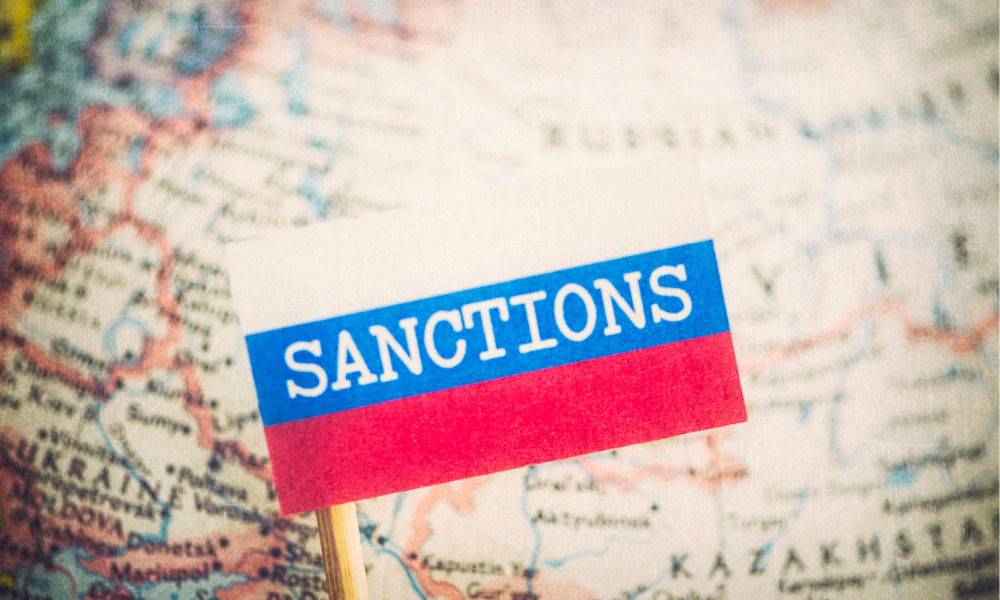
Prohibition part of latest sanctions

Canada has imposed another round of sanctions on Russia to undermine and erode the capabilities of the Russian military amid the ongoing conflict in Ukraine.
On Mar. 24, the federal government issued new regulations to amend the Special Economic Measures (Russia) Regulations. Section 3.6(1) of the new regulations prohibits any Canadian citizen or person in Canada from exporting, selling, supplying, or shipping any good described in the Restricted Goods and Technologies List to Russia or any person in Russia.
The Restricted Goods and Technologies List includes a broad range of items in electronics, computers, telecommunications, sensors and lasers, navigation and avionics, marine, aerospace, and transportation.
Meanwhile, s. 3.6(2) prohibits any Canadian citizen or person in Canada from providing technology to Russia or any person in Russia described in the restricted list. The term “technology” pertains to technical data and any form of technical assistance, such as providing instruction, training, consulting, or technical advice services and transferring know-how or technical data.
However, the new regulations exempt certain goods from the prohibition under s. 3.6(1). These goods include:
The prohibition on technology does not apply if the technology relates to goods not subject to prohibition under s. 3.6(1).
“It is highly recommended that businesses conduct a thorough review of the Restricted List and confirm whether or not their goods or technology-related sales and services meet the descriptions therein,” EY Law LLP stated in its tax advisory. “As the prohibitions cover selling, supplying and shipping, in addition to exporting activities, monitoring of the entire supply chain is necessary to minimize the risk of inadvertent non-compliance with the sanctions.”